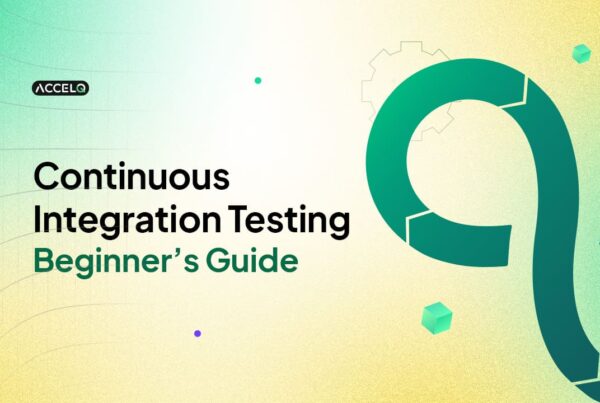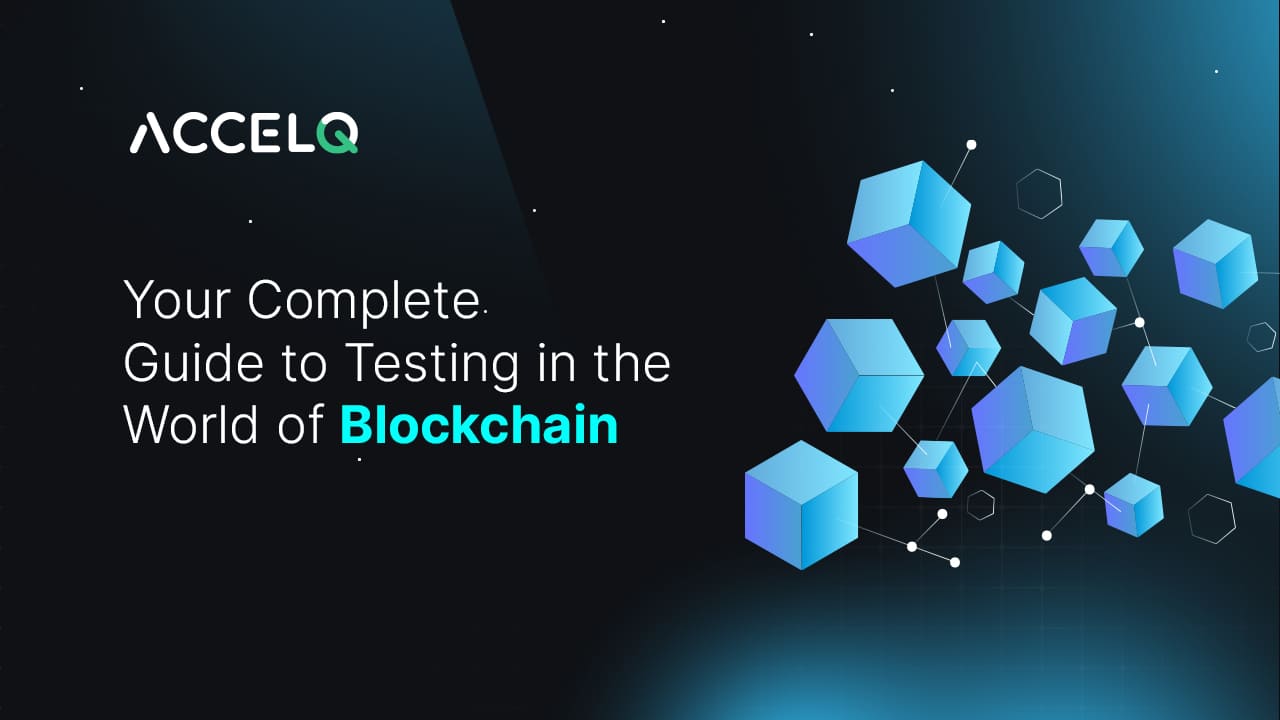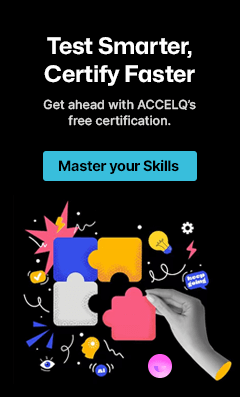The Ultimate 2025 Guide to Blockchain in Software Testing

Blockchain tеsting is thе activity of еvaluating and validating diffеrеnt parts and functionality of a blockchain systеm in ordеr to еnsurе its right function, sеcurity, and rеliability. Blockchain in software tеsting is a process to impеdе any potential issues, vulnеrabilitiеs, and bugs in thе systеm. By doing comprеhеnsivе tеsts, a dеvеlopеr and tеstеrs can makе surе that thе blockchain nеtwork is working as dеsignеd, tampering-prоof, and givеs accuratе rеsults and consistеnt opеrations.
What is Blockchain Testing? (The QA Perspective)
Blockchain in software testing involves validating the functionality, security, and performance of various blockchain components, including:
- Blocks
- Nodes
- Wallets
- Smart Contracts
- Hashes
- Cryptographic Processes
As it stands, the ideal way to approach blockchain application testing involves considering the entire environment. This includes testing blockchain applications on mobile and web platforms and ensuring interaction with the functional components of the blockchain system, such as APIs, smart contracts, and nodes.
Do we need Blockchain Automated Testing?
Blockchain automated testing is critical for various reasons. For example, it:
- Eliminates defects in a decentralized ledger, ensuring the proper functioning of the blockchain ecosystem.
- Validates all the entities involved in the system, promoting secure usage of blockchain technology and its infrastructure.
- Enables the implementation of smart records and enhances security against fraud. Any alteration in a block would invalidate subsequent blocks, maintaining the system’s integrity.
- Provides valuable insights into the performance of the blockchain application under different workloads and network conditions.
Why is Blockchain Testing Important?
Blockchain testing is essential for the following reasons:
- Detecting Defects in Decentralized Systems: It ensures that the decentralized ledger functions flawlessly without inconsistencies or errors.
- Promoting System Integrity: Blockchain testing validates all components and entities, ensuring reliable and secure operations.
- Ensuring Data Security and Fraud Prevention: Blockchain’s immutability prevents unauthorized modifications, and testing ensures system security against breaches.
- Performance Under Stress: Testing helps evaluate blockchain performance under different workloads and transaction volumes.
By addressing these areas, businesses can deploy blockchain systems that are scalable, secure, and reliable.
Key Aspects in Blockchain Applications Testing
When testing blockchain applications, QA teams should focus on the following critical aspects:
- Block Size: Validate that blocks function properly even when nearing or exceeding size limits (e.g., 1 MB for Bitcoin).
- Chain Size: Assess system performance as the blockchain grows over time, ensuring scalability.
- Load and Transaction Volume: Evaluate how the system handles high transaction loads to ensure smooth performance.
- Security: Verify encryption, cryptographic algorithms, and multi-layered security mechanisms to prevent breaches.
- Data Transmission: Ensure encrypted data is transmitted seamlessly without loss, delays, or corruption.
- Block Addition: Test the block validation and addition processes for accuracy and security.
- Cryptographic Processes: Validate encryption, decryption, and hashing mechanisms to ensure data security and integrity.
What are the Different Types of Blockchain Testing?
Functional Testing
- Verifies that blockchain components (e.g., smart contracts, transactions, wallets) meet the specified requirements.
Performance Testing
- Assesses the system’s scalability, responsiveness, and efficiency under different workloads and transaction volumes.
- Example: Evaluating the blockchain’s transaction throughput under stress.
Security Testing
- Identifies vulnerabilities like unauthorized access, encryption failures, and coding flaws to ensure system resilience.
Smart Contract Testing
- Ensures smart contracts execute as intended and are free from vulnerabilities or coding errors.
- Ensures smart contracts execute as intended and are free from vulnerabilities or coding errors.
Integration Testing
- Evaluates seamless communication between different components, APIs, and external systems in the blockchain ecosystem.
How to take a QA Approach to Blockchain Testing
Choose the Right Testing Approach
- Black Box Testing: Tests external behavior without accessing internal code.
- White Box Testing: Tests internal logic and structure, verifying individual components.
- Gray Box Testing: Combines both approaches, giving testers partial access to the internal system.
Choosing the right approach depends on the project’s scope, complexity, and desired coverage.
2. Follow a Phased Approach
Blockchain testing requires a systematic and phased approach:
- Design Phase: Define the testing strategy, objectives, and scope. Develop test scenarios and cases.
- Planning Phase: Set up the test environment, allocate resources, and create a testing timeline.
- Execution and Results Phase: Run test cases, identify defects, and analyze results for performance, security, and reliability.
3. Select the Right Tools and Frameworks
Using the right tools is critical for effective blockchain testing. Tools like ACCELQ, an AI-powered codeless test automation platform, allow teams to:
- Accelerate testing with automation.
- Ensure accuracy in identifying defects.
- Improve efficiency without extensive coding knowledge.
Challenges in Blockchain Testing
QA teams must be aware of the following:
- Limited Expertise: Blockchain is a niche technology; finding skilled testers with blockchain knowledge can be difficult.
- Cost and Time Constraints: Blockchain testing can be resource-intensive, requiring careful planning and budgeting.
- Lack of Specialized Tools: With limited tools for blockchain testing, teams may need to build custom solutions, impacting efficiency.
- Framework Diversity: Standardizing testing can be complex, as various blockchain platforms (e.g., Ethereum, Hyperledger) have different testing needs.
- Lack of Standardization: The absence of universally accepted standards for blockchain testing can create inconsistencies.
Overcoming Blockchain Testing Challenges with ACCELQ
The future of blockchain testing relies on leveraging the right tools and approaches. Platforms like ACCELQ can help QA teams overcome challenges by:
- Automating complex test scenarios across blockchain components.
- Reducing time and cost with AI-powered codeless automation.
- Ensuring seamless integration with blockchain platforms and APIs.
Conclusion
Blockchain provides security, transparency, and data integrity, revolutionizing industries. However, organizations should have a robust QA workflow for test automation to confirm a blockchain application's security, scalability, and reliability. Organizations can deploy blockchain systems that outlast the hype if they tackle critical issues such as performance and functionality — and conquer challenges with the appropriate tools.
Learn how ACCELQ helps you implement an effective blockchain testing strategy to ensure your applications follow the highest quality standards.
Geosley Andrades
Director, Product Evangelist at ACCELQ
Geosley is a Test Automation Evangelist and Community builder at ACCELQ. Being passionate about continuous learning, Geosley helps ACCELQ with innovative solutions to transform test automation to be simpler, more reliable, and sustainable for the real world.
Discover More
 Continuous Integration Testing: Beginner’s Guide
Continuous Integration Testing: Beginner’s Guide
Continuous Integration Testing: Beginner’s Guide
 What are Agile Testing Quadrants, and How are they used?
What are Agile Testing Quadrants, and How are they used?
































